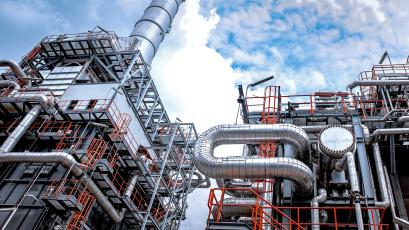Refiners are buyers in the global market for crude oil and sellers of refined products. We are price takers not price makers, which means expensive oil is not an economic boon to the U.S. refining sector. In fact, profit margins from refining have historically averaged about 4-5 cents per gallon.
U.S. refiners purchase raw crude oil and process it into products consumers can use. Those products (including gasoline and diesel) are shipped to terminals, which are regional storage facilities, where oxygenates (like ethanol) and fuel detergents are added to make finished, consumer-ready fuels. From terminals, finished fuels are delivered to more than 150,000 local retail outlets.
We do not have government-owned refineries in the United States as many countries do, nor is there coordination among market participants to manipulate supply like in OPEC+. U.S. refineries compete to supply terminals, distributors, and retail outlets around the country. Facilities with the most efficient operations are the ones that tend to do best. A strong U.S. refining sector is a pillar of American energy security.
The U.S. refining industry is the most competitive in the world, which is a benefit to American households. Our complex facilities are uniquely suited to handle difficult-to-refine crude oil and other petroleum feedstocks that refineries elsewhere cannot process. This creates competitive advantage. At the same time, the United States is able to sell some of our higher-quality crude to countries that need it. This combination is powerful.
Beyond the current situation with Russia and a suspension of Russian imports, which AFPM believes is the right thing to do, it’s important to understand why participating in the global energy market—by both importing and exporting—is good for our country.
If we were to ever withdraw from the market or restrict access to imports for the long term, it would eliminate the United States’ competitive advantage as a complex refining powerhouse and hamper our ability to efficiently produce the quantities of fuel needed for Americans and consumers around world. We do not produce enough crude oil domestically to supply every U.S. refinery. The absence of imports would mean idling more U.S. refining capacity. Gasoline would be more expensive to produce without imports. The United States would also be less energy secure.
Participating in the global energy market is critical and allows U.S. refineries to optimize crude slates and produce a wide range of products that the world needs.
The American Fuel & Petrochemical Manufacturers (AFPM) is the leading trade association representing the makers of the fuels that keep us moving, the petrochemicals that are the essential building blocks for modern life, and the midstream companies that get our feedstocks and products where they need to go. We make the products that make life better, safer and more sustainable — we make progress.


